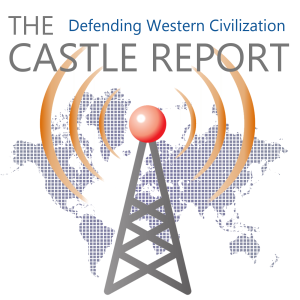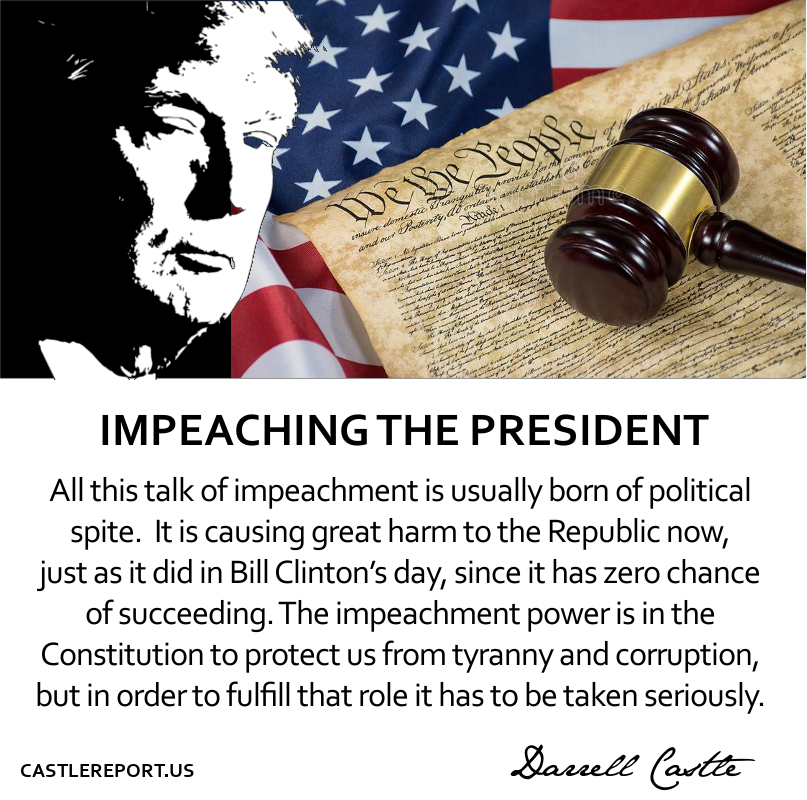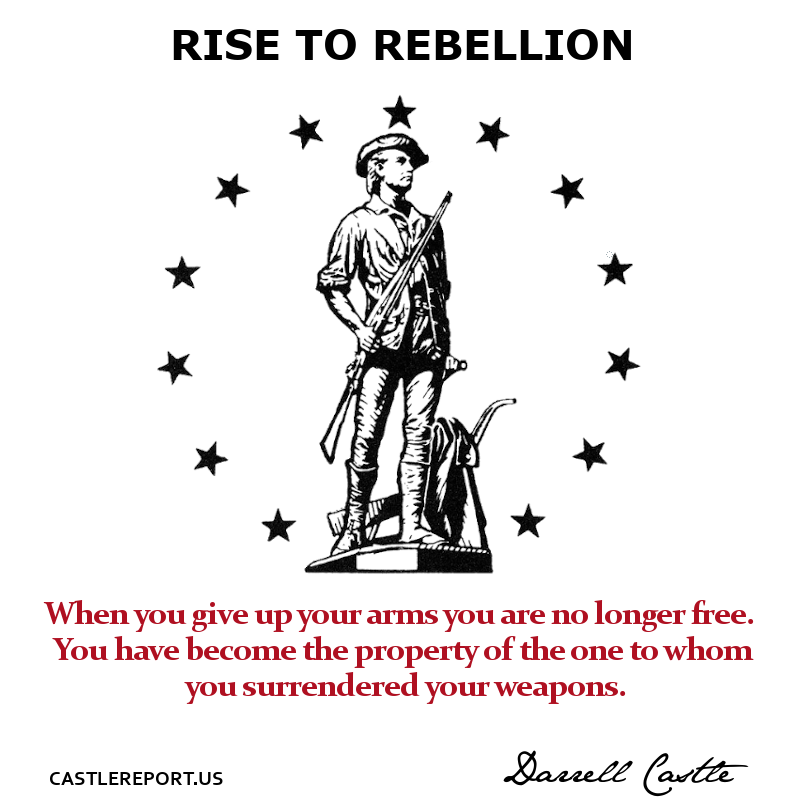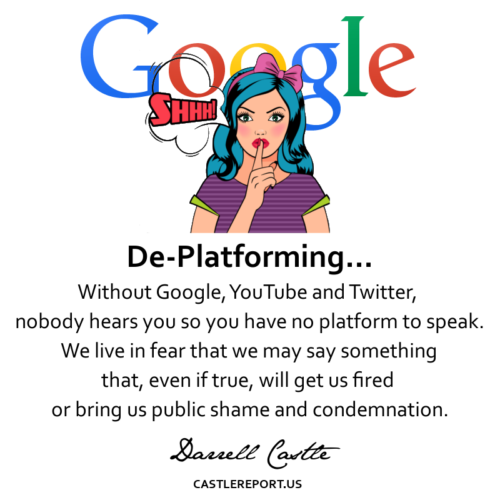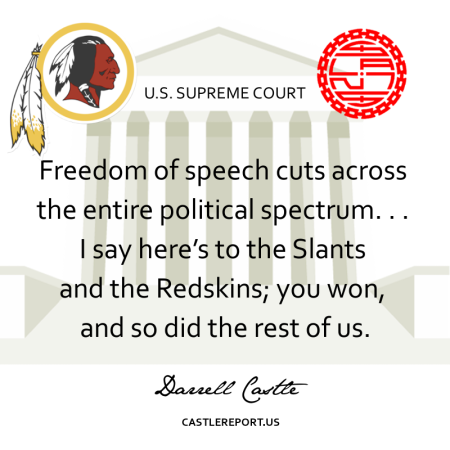
SCOTUS Says It’s OK to Hate Again
Podcast: Download
Darrell Castle discusses the Supreme Court’s recent decision involving the First Amendment and the Freedom of Speech Clause.
Transcript
SCOTUS SAYS IT’S OK TO HATE AGAIN
Hello this is Darrell Castle with today’s Castle Report. Today is Friday July 14, 2017. In this Report I will be talking about the recent United States Supreme Court decision in which the court unanimously held that so called hate speech is protected under the 1st amendment. The decision was 8-0 since Justice Gorsuch had not taken his seat at the time of the ruling.
This case arose eight years ago when an Asian rock band out of Portland Oregon decided to call itself “The Slants”. The U.S. Patent and Trademark Office kept the band from registering its name and rejected its appeal citing the Lanham Act which prohibits any trademark that could disparage or bring into contempt or disrepute any person living or dead.
A lower Federal Court agreed with the band but then the Patent and Trademark Office filed suit to avoid being compelled to register the name. On Monday June 19, the Supreme Court sided with The Slants.
Writing for four of the judges, Justice Samuel Alito said “The idea that the government may restrict speech expressing ideas that offend strikes at the heart of the first amendment. Speech that demeans on the basis of race, ethnicity, gender, religion, age, disability, or any other similar ground is hateful, but the proudest boast of our free speech jurisprudence is that we protect the freedom to express the thought that we hate.”
Writing for the other four Justice Anthony Kennedy wrote, “A law found to discriminate based on viewpoint is an egregious form of content discrimination, which is presumptively unconstitutional. A law that can be directed against speech found offensive to some portion of the public can be turned against minority and dissenting views to the detriment of all.”
The Justices, had a problem with the idea that commercial speech can be cleansed of any content deemed offensive by the government. Cleansing commercial speech of anything offensive or even determining what is offensive is not the government’s responsibility.
This decision, will have far reaching results. For example, one benefactor of the decision is the Washington Redskins of the National Football League. In June 2014, the Trademark Trial and Appeal Board of the U.S. Patent and Trademark Office ordered that all registrations for the Redskins trademark be canceled under the disparagement clause. That decision was the result of the decades long battle with various Native American heritage groups who believed the name Redskins to be offensive and disparaging to Native Americans.
The Redskins filed suit challenging the Constitutionality of the disparagement clause but that suit was stayed pending the outcome of The Slants case. I imagine that Redskins owner Dan Snider’s team of lawyers was in the Trademark Office the next business day after this decision came out. Other business people whose brands have been rejected or who didn’t file because of the disparagement clause can now file freely.
The Redskins have fought to keep their trademark in the face of claims that the name is a racial slur. The Slants had its trademark rejected first in 2010 on the grounds that it was hurtful to a stigmatized community. The band contended that marginalized groups should “determine what’s best for ourselves”. Whether or not Asian Americans are a marginalized group in America is another argument but with this decision the Supreme Court has unanimously ruled that it is not up to the government to manipulate the rules and punish individuals in order to correct perceived societal injustices.
This decision by the Supreme Court was a major victory for the First Amendment and for freedom of speech in general. The American Civil Liberties Union called the ruling “a major victory for the First Amendment”.
What then is freedom of speech as it is set out in the First Amendment. The Amendment says “Congress shall make no law abridging the freedom of speech.” So that clause recognizes that it is important for people to be able to speak their minds without fear of government sanction. Congress shall make no law directs the Federal Government to refrain from efforts to control the contents of people’s speech through legislation or regulation and this trademark legislation was a pretty good example of that. Even so it took more than eight years for the matter to be litigated and finally concluded.
The First Amendment doesn’t direct private individuals or groups of individuals from doing or prevent them from doing anything. It directs the government to restrain itself, not individuals. There is then, a perfectly valid way for the private or free market to control these things if restraint on speech is what people really want. No one has to go begging the government for laws or regulations to control the speech of others.
If someone doesn’t like the name Redskins then let him stop buying tickets, stop going to games, stop watching on television, stop buying merchandise, stop patronizing sponsors. If enough people do likewise I guarantee you the name will change because to do otherwise would be economic suicide. The same concept exists for The Slants, i.e. don’t listen to their music if you don’t like their name, but don’t expect the government to do the work for you.
This ruling has nothing to do with the free speech of Americans in their daily private lives. In other words, the First Amendment protects us from government action not private action. If your employer could fire you before for saying bad things about him he still can. If a business owner could sue you for slander or libel and prevail before, he still can.
In closing then, this is a very important decision and long overdue. The fact that it was unanimous is significant in that it recognizes that freedom of speech cuts across the entire political spectrum.
I plan to continue this freedom of speech discussion next week but for now I say here’s to the Slants and the Redskins; you won and so did the rest of us.
At least that’s the way I see it,
Until next time folks,
This is Darrell Castle,
